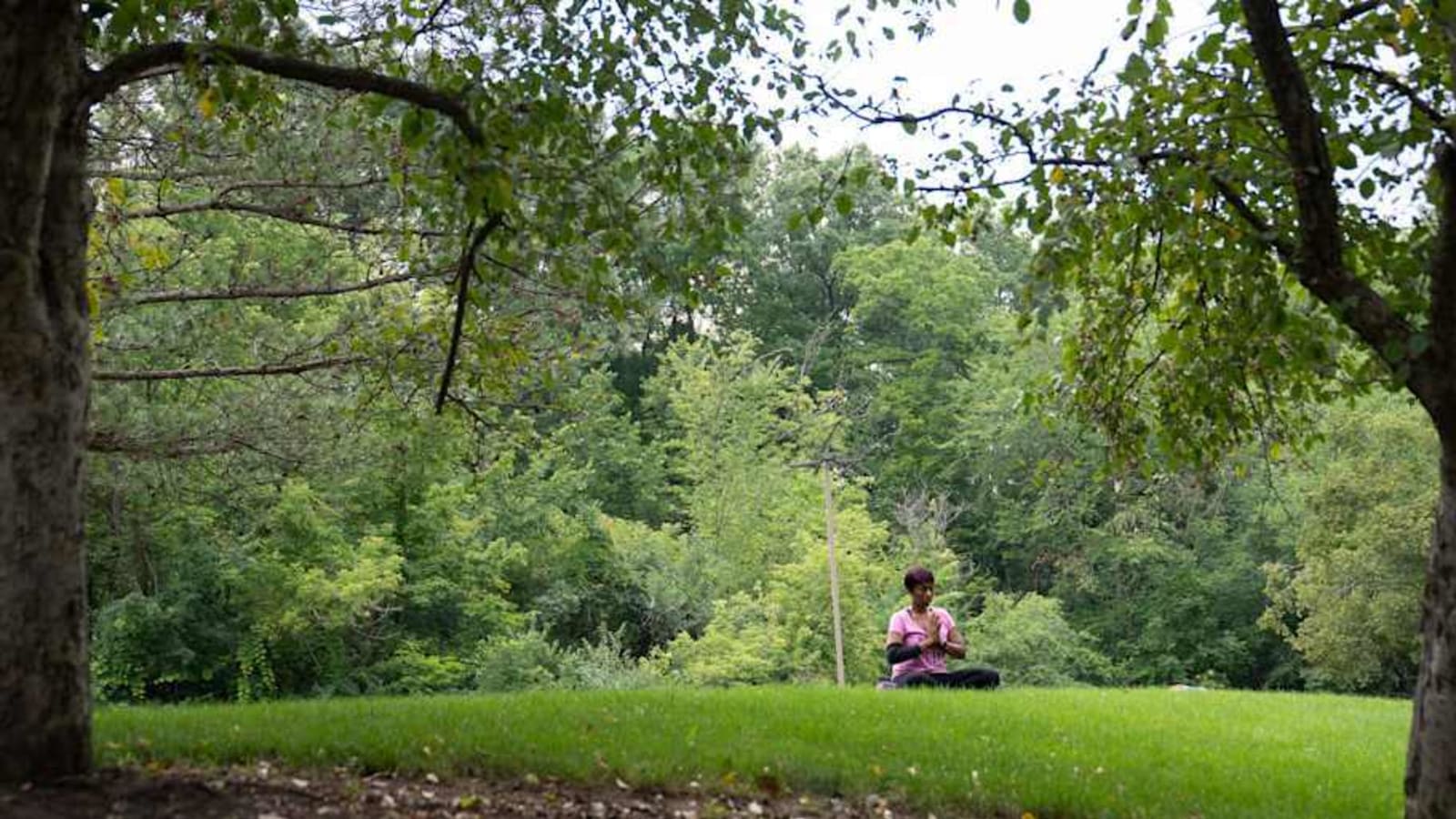
Yoga is a wonderful stress reliever for both the mind and the body, with practitioners citing health benefits such as increased flexibility, lower stress levels, and even better posture.
But taking your yoga practice outdoors can amplify these benefits, plus expose you to a few new ones you wouldn't otherwise get when rolling out your mat indoors.
1. Exposure to the Sun
About 35% of adult Americans are vitamin D deficient, and taking your yoga practice outside can help you get your daily dose of vitamin D.
Vitamin D is important for bone health and a strong immune system, and can also help alleviate mental health symptoms such as depression and anxiety.
Be sure to wear sun protection like sunscreen or long sleeves if you plan on a lengthy outdoor practice.
2. Connection with Nature
Connecting with nature is one of the best ways for people to feel grounded, and studies have shown that increased time outdoors can lower stress levels and increase happiness.
Forest bathing is another way in which people get in touch with nature, and follows many of the same practices as yoga, including breathwork and grounding.
3. Improved Focus and Concentration
Practicing yoga can really help your focus and concentration levels, but practicing outdoors increases those benefits by getting gin touch with the sights, sounds, and smells of nature.
The added sensory input that comes with practicing outdoors can help you feel more connected with your body, enabling you to concentrate more on the poses and how you feel.
4. Increased Balance and Flexibility
Almost all yoga practitioners report increased balance and flexibility, but taking your practice outside can really take you to the next level.
Practicing on an unsteady surface--such as sand, if beach yoga is your thing--can work the finer muscles of your feet and ankles, adding to your balance and strength. A softer surface may also allow you to reach previously unattainable poses, aiding your flexibility.
5. Improved Mental Health
Spending time outside can greatly reduce symptoms of anxiety, depression, and a host of other mental health challenges.
While an outdoor yoga practice won't cure your mental health concerns, it can help to alleviate symptoms such as fatigue, irritability, and insomnia.
6. Added Meditation Benefits
A large part of yoga is meditation, even if you don't feel like you're meditating.
Studies have shown that those who meditate and practice yoga have a smaller amygdala, which is the part of the brain that processes and controls fear.
Those who spend time outside also have lower levels of the stress hormone cortisol.
By combining those healthy practices into outdoor yoga, you get a 2-for-1 deal that will help you stay calm and focused in your day-to-day life.
Final Thoughts
Taking the leap to practice yoga outdoors for the first time can be daunting, but its a healthy and practical way to get more sunshine, breathe some fresh air, and lower your stress levels.
Try outdoor yoga for decreased anxiety, increased flexibility, and a relaxing change of pace.
More must-reads:
- Perennial Super Bowl contender almost took Shedeur Sanders in 2025 NFL Draft
- Giants O-lineman throws tantrum after penalty-filled drive vs. Cowboys
- The 'FBS animal teams' quiz
Breaking News
Trending News
Customize Your Newsletter
 +
+
Get the latest news and rumors, customized to your favorite sports and teams. Emailed daily. Always free!








